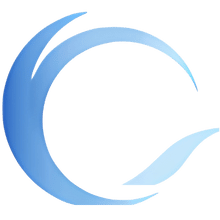Comprehensive Guide to Selective Laser Trabeculoplasty (SLT)
for Glaucoma Management


Request an Appointment
Selective Laser Trabeculoplasty (SLT) is a safe and effective laser treatment designed to lower intraocular pressure (IOP) in patients with glaucoma and ocular hypertension. Developed in the mid-1990s, SLT offers a targeted approach that addresses excess eye pressure by improving natural fluid drainage through the trabecular meshwork. This modern treatment provides an alternative or supplement to daily eye drop regimens with the benefit of minimal side effects and rapid recovery. Associated Eye Physicians & Surgeons of NJ proudly offers eye care at four convenient locations: Belleville serving Essex County, Rahway serving Middlesex and Union Counties, Jersey City serving Hudson County, and Union serving Union County.

Dr. Paige Hershkin, a board-certified ophthalmologist, specializes in cataract surgery and glaucoma care.
SLT Overview and Benefits
for Your Eye Health




Who is a Good Candidate for SLT?
SLT is a valuable treatment option for a variety of patients experiencing challenges with glaucoma or ocular hypertension. It is particularly beneficial for those with open-angle glaucoma variants where the drainage pathway is accessible. Our glaucoma specialist recommends SLT for patients who:
- Have primary open-angle glaucoma (POAG) or ocular hypertension (OHT)
- Experience secondary open-angle glaucoma, such as pigmentary glaucoma, pseudoexfoliative glaucoma, or steroid-induced glaucoma
- Struggle with the consistent use of glaucoma medications
- Experience side effects from eye drops or have sensitivities to preservatives
- Face challenges with self-administration of eye drops due to memory or mobility issues
- Need additional IOP reduction after previous successful incisional glaucoma surgeries
SLT is also attractive for patients looking for a less burdensome treatment option that may reduce their reliance on daily medications.
SLT Procedure Details




Contraindications for SLT
While SLT is versatile, it is not the right choice for everyone. Patients with certain types of glaucoma may not benefit from the procedure. In particular, SLT is generally not recommended for individuals with:
- Inflammatory glaucoma
- Iridocorneal endothelial (ICE) syndrome
- Congenital glaucoma
- Neovascular glaucoma
Additionally, if one eye has shown no positive response to SLT, it is unlikely that further treatment in the other eye will yield a beneficial outcome. Also, while the procedure is typically painless, patients with severe anxiety or those who struggle with contact lens procedures may experience difficulty during treatment.
SLT Efficacy and Repeatability
One of the many reasons SLT is becoming an increasingly popular treatment is its proven efficacy. Clinical studies have shown that SLT can lower IOP by approximately 25-30% following a single 360-degree treatment, comparable to the effect of first-line prostaglandin analog eye drops. Results from clinical research have indicated that:
- About 85-90% of patients respond positively to SLT in reducing eye pressure.
- Long-term success is evident, with studies showing a 70% success rate at 6 months, 45% at 12 months, and 27% at 24 months in some research settings.
- In pivotal trials like the LiGHT Trial, nearly 70% of treated eyes maintained target IOP without the use of additional medications for several years.
A key advantage of SLT is that it can be safely repeated. Because the procedure does not permanently damage the trabecular meshwork, it allows for additional treatments if the IOP reduction diminishes over time. Studies have found that repeat SLT treatments can yield pressure reductions similar to those achieved with the initial treatment, offering extended benefits for long-term glaucoma management.


SLT Compared to Emerging Laser Technologies
While newer approaches like Excimer Laser Trabeculostomy (ELT) and Femtosecond Laser Image-Guided High-Precision Trabeculotomy (FLIGHT) are making strides in glaucoma management, SLT continues to hold an important place in treatment.
Here’s what distinguishes SLT from these emerging technologies:




Comparison of SLT
with Other Treatments
For years, glaucoma management has centered around daily eye drops and surgical interventions. Traditional options include:
- Topical eye drops, which require strict adherence and can have side effects, especially for patients with ocular surface sensitivities.
- Argon Laser Trabeculoplasty (ALT), a precursor to SLT that, while effective, causes more tissue damage and cannot be repeated.
- Surgical procedures such as trabeculectomy or tube shunts, which carry higher risks and longer recovery times.
SLT offers several advantages over these treatments. Unlike daily eye drops, SLT improves patient compliance by reducing medication dependency. Its selective targeting means less risk of tissue damage when compared with ALT, and since it is non-invasive, there is a lower risk of complications than with traditional surgeries. These benefits make SLT a versatile option, often used either as a first-line treatment for newly diagnosed patients or as a supplement when additional pressure reduction is needed.
Practical Tips for a
Successful SLT Experience
Preparing for SLT and ensuring its success involves working closely with your eye care provider.
Here are some practical suggestions:
Frequently Asked Questions About SLT
Your Trusted Glaucoma Specialists Serving Central and Northern NJ
At Associated Eye Physicians & Surgeons of New Jersey, we are dedicated to providing effective solutions for managing glaucoma. Selective Laser Trabeculoplasty (SLT) represents a modern, patient-focused approach to lowering eye pressure without the burdens of daily medications. With its proven efficacy and minimal side effects, SLT may be the right choice for your eye health. Experience personalized, expert eye care by scheduling an appointment with our eye doctors in Belleville, Jersey City, Rahway, or Union, NJ.
Request an Appointment
- Glaucoma
- Glaucoma Treatment
- Minimally Invasive Glaucoma Surgeries (MIGS)
- Can my Medication Raise Eye Pressure?
- Glaucoma Symptoms and Stages
- Marijuana and Glaucoma
- Living with Glaucoma
- Selective Laser Trabeculoplasty (SLT)
- Dry Eye in Glaucoma Patients
- What is a Glaucoma Suspect?
- YAG Laser Iridotomy
- iDose TR
At Associated Eye Physicians of NJ, we’ve built our reputation on care that’s local, personal, and easy to get to. With offices in Belleville, Union, Jersey City, and Rahway, we’re proud to serve a wide range of communities across North and Central Jersey. Our Belleville team welcomes patients from all over Essex County, including Newark, Bloomfield, and Nutley. Rahway welcomes patients from across Middlesex and Union Counties, including nearby patients from Elizabeth, Avenel, Woodbridge, and Perth Amboy. Our Union office is a favorite for families from Union County, especially for those in Elizabeth and Cranford. And in Jersey City, we care for Hudson County residents, including our neighbors in Hoboken and Bayonne.
